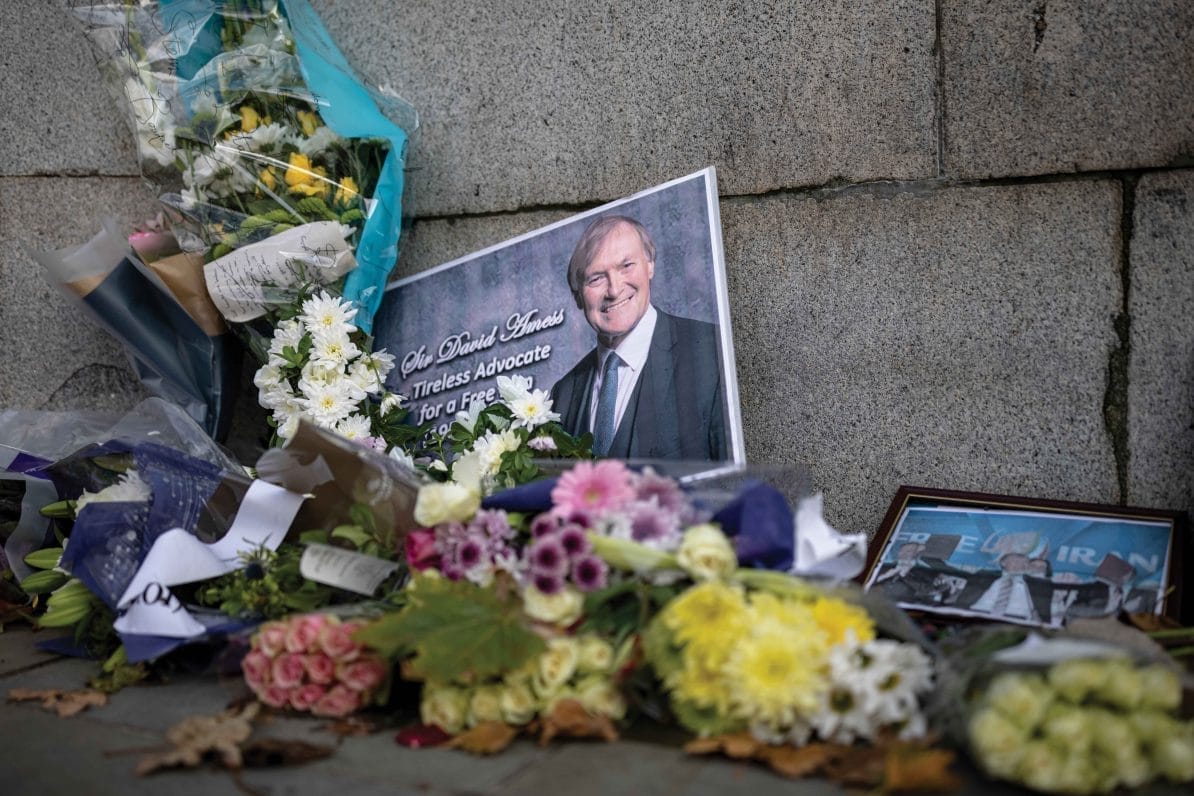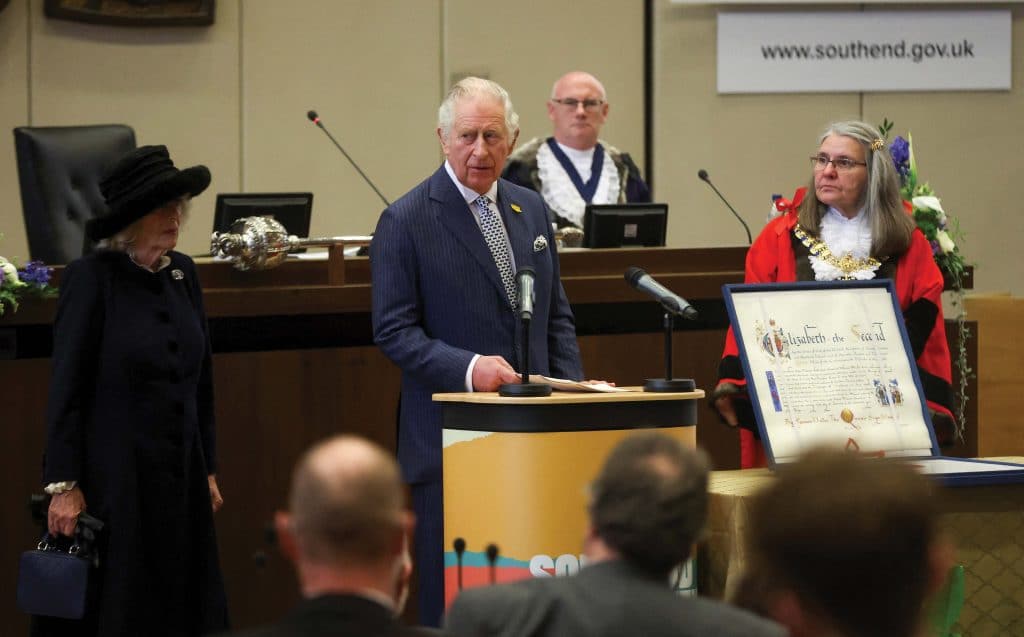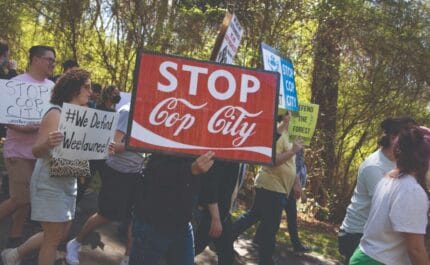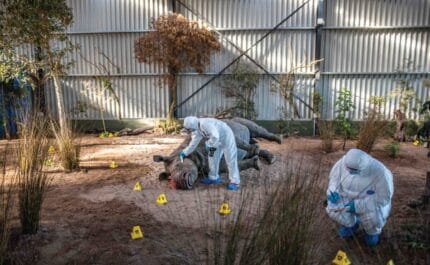Moment that mattered: Sir David Amess MP is killed
In 2021 we spoke to Essex councillor John Lamb about the murder of his friend and colleague in a terror attack

A floral tribute to murdered MP Sir David Amess is left outside parliament in London, 19th October 2021. Photo: Rob Pinney / Getty Images
15th October 2021 (Taken from: #45)
On 15th October, Sir David Amess died after being attacked at a church hall in the coastal town of Leigh-on-Sea, Essex. The Conversative member of parliament for Southend West had been holding a constituency surgery at Belfairs Methodist Church at the time of the incident, as he did most Friday lunchtimes. Shortly after the 69-year-old entered the building, his assailant emerged from a group of waiting constituents and stabbed the MP multiple times.
Councillor John Lamb, a Conservative party councillor in Leigh-on-Sea, a district of Southend-on-Sea, arrived at the scene in the aftermath of the attack. “People just couldn’t believe it,” he recalls. “Everyone was praying that he would live, but of course he didn’t.” Sir David was pronounced dead at the scene an hour after the attack. Although paramedics had arrived within minutes, his injuries were so severe that they hadn’t been able to get him to hospital.
Sir David was one of Westminster’s longest-serving MPs. He was first elected in Basildon in 1983, when his political hero Margaret Thatcher won by a landslide, and in 1997 he moved to nearby Southend West, a constituency he served for 24 years. While not everyone locally agreed with some of his right wing views – a staunch Catholic, he opposed abortion and supported the restoration of the death penalty – few questioned his dedication to the needs of his constituents and to the betterment of his beloved Southend-on-Sea. An old-fashioned constituency MP, he never held ministerial office in his 38 years in parliament.
He was an exceptional constituency MP”
On the day of Sir David’s funeral, a horse-drawn hearse carrying his coffin paused outside his constituency office for a minute’s silence. Most of Sir David’s surgeries took place here at Iveagh Hall where today, on the back wall, alongside portraits of Conservative icons past and present – Winston Churchill, Margaret Thatcher, Boris Johnson – is a framed photo of Sir David with his trademark smile. Lamb, who served as mayor of Southend-on-Sea between 2019 and 2021, enjoyed many cups of tea with Sir David in this building over the decades. “We had lots of sessions where we’d go through some of the issues we had in the council,” he says. “But I’d also meet David outside of council. He loved getting on the old barbecue and doing the cooking. We used to have a laugh with that. There are many personal things we were involved with and I have many very fond memories.”
Lamb considered Sir David a mentor as well as a friend. “He got me involved in local politics,” he says. “He was canvassing in 1997 and knocked on my door… I had no thoughts about going into local politics at the time but he said that ‘we could really do with some help’ and he encouraged me to become a councillor… I got elected in 1999 and I’ve been a councillor ever since”.
Lamb says that Sir David’s devotion to his constituents set an excellent example. “He was an exceptional constituency MP,” he says. “David wanted to help people – that’s what he set out to do and that’s what he delivered. If anyone, regardless of race or creed or anything else, went to see David with a problem he’d try and help, and if he couldn’t help you he’d always put you in touch with the right person to speak to”.
For two decades before his death, Sir David campaigned vociferously for Southend-on-Sea to be granted city status, making the case in parliament at every opportunity. Three days after his killing, the prime minister confirmed that the Queen had agreed to make Southend-on-Sea the 52nd city in England. “He never once witnessed any achievement by any resident of Southend that could not, somehow, be cited in his bid to secure city status for that distinguished town,” Johnson said in parliament. It wasn’t far off the truth – on one occasion in 2018 Sir David argued that Southend-on-Sea qualified for city status because the Music Man Project, a Leigh-on-Sea charity of which he himself was president, had “set a new world record for tinkling the highest number of triangles”.
On 1st March 2022, Prince Charles and the Duchess of Cornwall visited Southend-on-Sea to officially give it city status. The ceremony was a bittersweet occasion. Sir David’s dream had come true, but only in the wake of what Prince Charles described as “a terrible attack on our democracy”. Sir David posthumously became the first freeman of the city of Southend-on-Sea.

Prince Charles officially declares Southend-on-Sea a city at a council meeting on 1st March 2022. Photo: Matthew Childs / Pool / AFP via Getty Images
“David would have loved to have seen Southend become a city, and we all wish he could have been there to see it happen,” says Lamb. “He would have been over the moon. It was his hard work that pushed it forward.” Sir David always believed that being a city would transform Southend-on-Sea, and Lamb agrees. “It’s about the kudos of being a city,” he says. “You get businesses who want a city address, and this is an ideal opportunity for them to come in”.
Sir David was the second sitting MP to be killed in five years, following the murder of Labour MP Jo Cox in 2016. On that occasion the assailant was a right wing extremist. On 21st December the man accused of killing Sir David, 25-year-old Ali Harbi Ali from London, pleaded not guilty to terror and murder charges. At Ali’s murder trial in March the court heard that he wanted to kill MPs who voted to carry out airstrikes in Syria, and that he thought Amess was “the easiest” target.
After the killing of Sir David, Kim Leadbeater, the sister of Jo Cox and MP in her former constituency of Batley and Spen, said that not enough has been done to protect parliamentarians since 2016. She has called for parliamentary authorities to hold “serious conversations” about MPs’ safety after the investigation into Sir David’s death has concluded. Lamb says that he’s had conversations with colleagues about safety, including some with Sir David’s successor Anna Firth, who won a February 2022 by-election in which none of the other major parties fielded candidates.
“We’ve been asking the question of what we can do to try and keep people safe but the role of a councillor, the role of a member of parliament, is to be available for the public to see them and talk to them,” Lamb says. “How can they hear the points of view of the members of the public if they’re not out talking to them? That was David’s forte, talking and listening.”
There’s a particular sadness in the fact that Sir David was killed doing the thing he did best. While there were topics on the national agenda he cared about deeply – he was a keen Brexit supporter, an advocate of animal rights and a campaigner to end fuel poverty – his main passion in politics was helping his constituents.
“People couldn’t understand how someone could come and do this to a person who would have helped them,” says Lamb when asked about the atmosphere at Belfairs Methodist Church on the day of the killing. “The person accused of this, he had booked into the surgery. And if he’d been seen he would have received help from David, for whatever his problem was. Nobody there could believe that this could happen”.
Slow Journalism in your inbox, plus infographics, offers and more: sign up for the free DG newsletter. Sign me up
Thanks for signing up.








